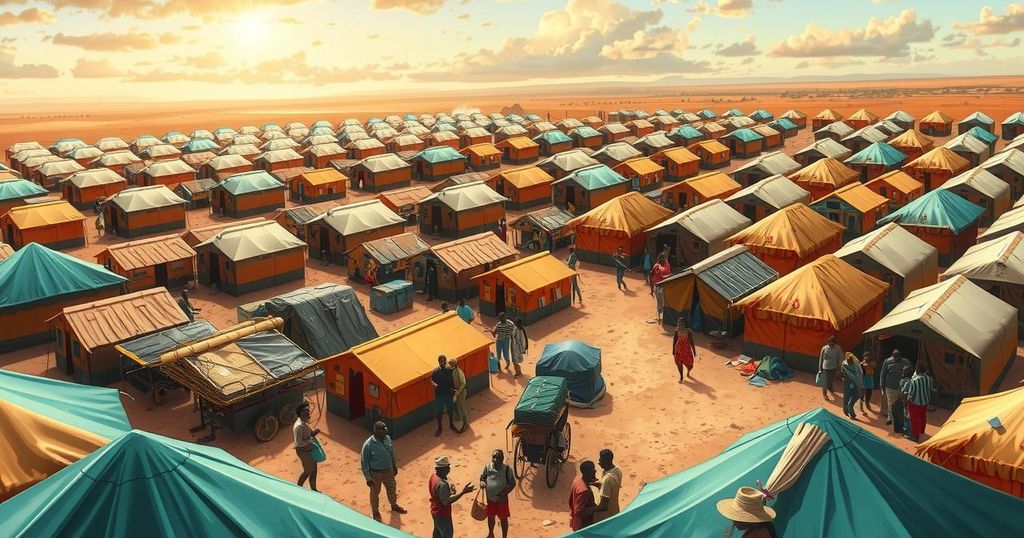Public Health Research in Kakuma Refugee Camp: Empowering Women through Community Engagement

Bhavya Joshi, a doctoral student at UC Berkeley, travels to Kakuma Refugee Camp in Kenya to conduct pivotal research on the reproductive health needs of South Sudanese women. Utilizing a community-based participatory research approach, her work highlights critical gaps in maternal healthcare amid compounded crises like armed conflict and food insecurity. Joshi’s findings aim to empower local women and guide policymakers toward better healthcare solutions for refugees.
In July 2024, Bhavya Joshi, a doctoral student from UC Berkeley’s School of Public Health, embarked on a 500-mile journey to Kakuma Refugee Camp in northern Kenya. Despite recovering from illness and traveling extensively over recent months, Joshi expressed excitement about her return to the camp, which serves over 290,000 refugees from various countries. Founded in 1992, Kakuma is supported by the Kenyan government and UN Refugee Agency.
Joshi’s research focuses on understanding the health needs of South Sudanese women in the camp, particularly regarding maternal health amid ongoing crises, including armed conflict and food insecurity. Her work is supported by UC Berkeley and adopts a community-based participatory research (CBPR) approach, involving refugee women in all aspects of the study. This methodology ensures that the unique needs of marginalized communities are highlighted in health research.
The findings reveal alarming maternal health statistics, with South Sudan having the highest maternal mortality rate globally. Joshi’s research highlights critical gaps in health services such as lack of cervical cancer screenings and inadequate family planning options, often neglected due to prioritization of basic survival needs. Joshi emphasized the impact of compounded crises on women’s health within the community, noting increased risks of gender-based violence and economic hardships.
Joshi’s commitment to supporting women’s health stems from her own childhood experiences in New Delhi, India, where she witnessed gender-based violence and inequality. Educated at top institutions, she previously conducted research in various humanitarian settings before focusing on Kakuma. Her goal is to engage with the most vulnerable populations to ensure no one is left behind due to socio-economic factors.
In her work, Joshi collaborates with local organizations and has trained young women in Kakuma to collect data and facilitate community engagement. The importance of feedback and community ownership was reinforced during a workshop where refugees participated directly in discussing findings and implications of the research.
Joshi also met with representatives from relevant health organizations to explore existing challenges and potential solutions in reproductive healthcare. Local leaders and NGOs play crucial roles in addressing barriers to health services, and group discussions have reportedly increased family planning uptake among men.
As she concluded her visit, Joshi contemplated the deeper connections formed through her research, where participants felt a burden lifted by candid discussions on reproductive health. Her aspiration for future improvements in healthcare for refugees remains steadfast, rooted in collaboration and actionable insights from her findings to guide policymakers in addressing complex health crises.
Bhavya Joshi’s initiative in Kakuma Refugee Camp illustrates the critical need for addressing maternal health and reproductive rights among vulnerable populations. Through participatory research, she not only gathers vital data but also empowers local women to take an active role in their health outcomes. With alarming maternal mortality rates and inadequate healthcare resources, this research serves as a crucial step toward fostering collaborative solutions that prioritize the specific needs of refugee women, ultimately influencing policy and improving lives.
Original Source: publichealth.berkeley.edu







